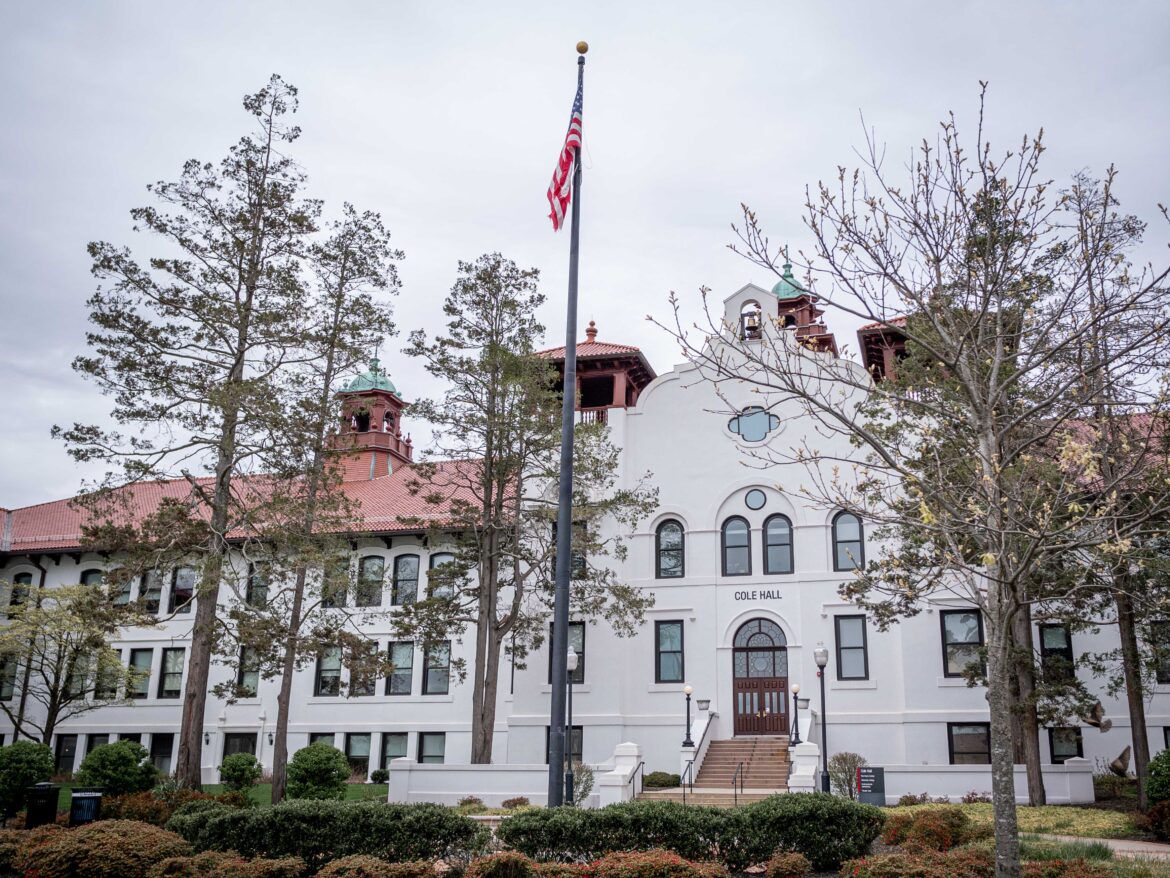Leading up to the 2024 presidential election, political messaging is at a high all around.
Generation Z share political content and calls to action on social media whilst candidates campaign their way to the home stretch. However, many people in Gen Z have begun to feel burnt out with the political system over recent years for a variety of reasons, including higher-than-ever levels of political polarization and the complete inability of the two parties to cooperate on legislation.
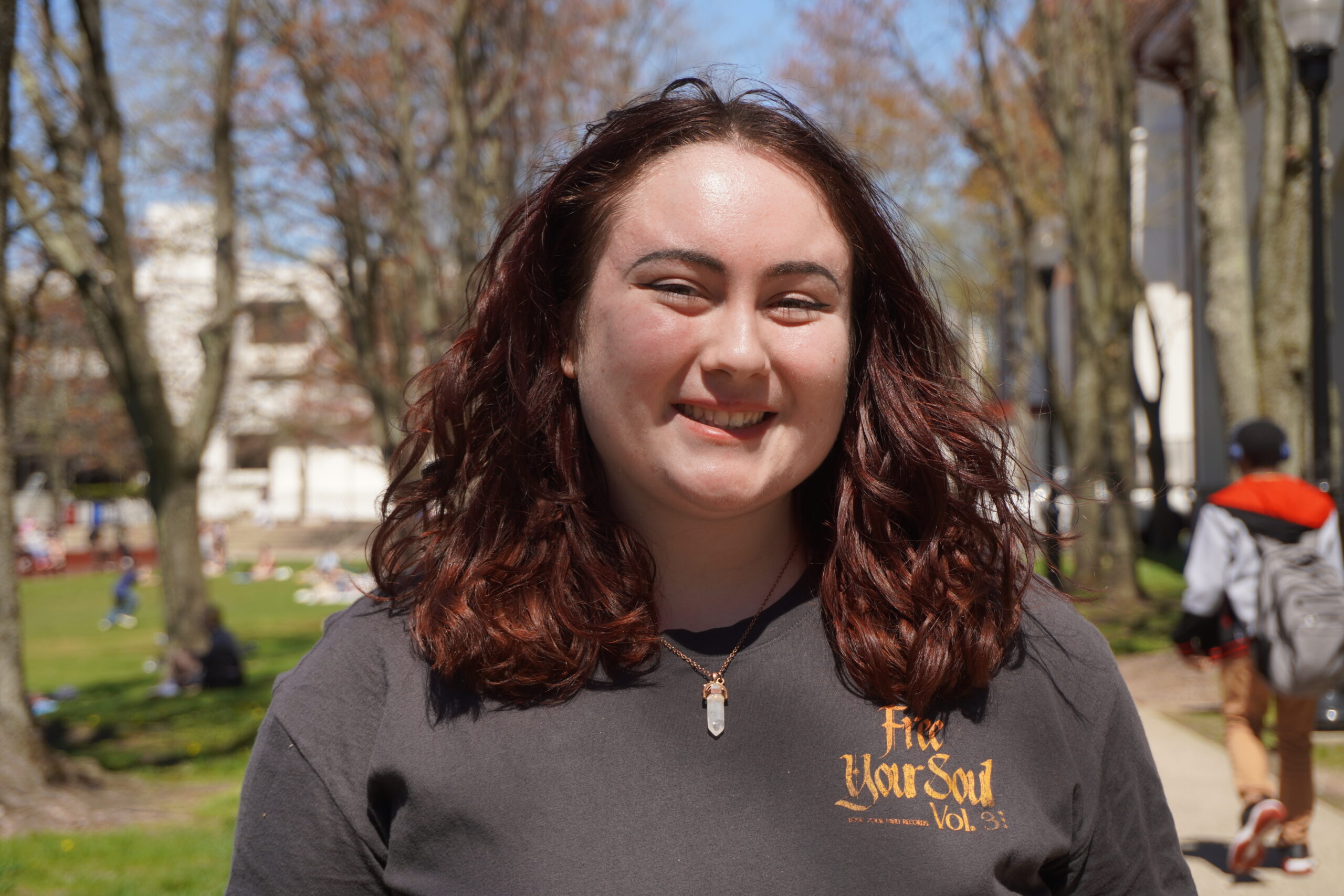
Mary Gray, a sophomore theater studies major, remains politically engaged on online social media platforms. Jordan Reed | The Montclarion
Mary Gray, a sophomore theater studies major at Montclair State University, cites an overload of programming being fed to Gen Z.
“I see a lot of [political content] online. I try to engage and be aware of what’s going on,” Gray said. “At times it becomes too much or too upsetting, and you have to take a step back. So I try to stay engaged, but sometimes you have to take a step away for your own sanity and mental health.”
Studies have shown that most members of Gen Z engage in politics most commonly through social media platforms.
According to Sean Freeder, a political science professor at the University of North Florida, “Social media clearly influences public opinion, as for many Americans, especially young Americans. Social media is the primary source of political news… Gen Z is more impacted by social media than any generation, but it also probably has the greatest ability to navigate social media. For instance, while misinformation spreads easily online, young people are far less likely to believe false information than older people.”
Gray also points to social media as the main source of political information.
“I feel like I see a lot of engagement on social media like every other post I see on Instagram on people’s stories is all reposting political information about humanitarian causes,” Gray explained. “I feel like it’s more of a social media thing than an in-person thing because usually with peers you’re going to class, they’re discussing their work or with your friends, you try to stay away from politics.”
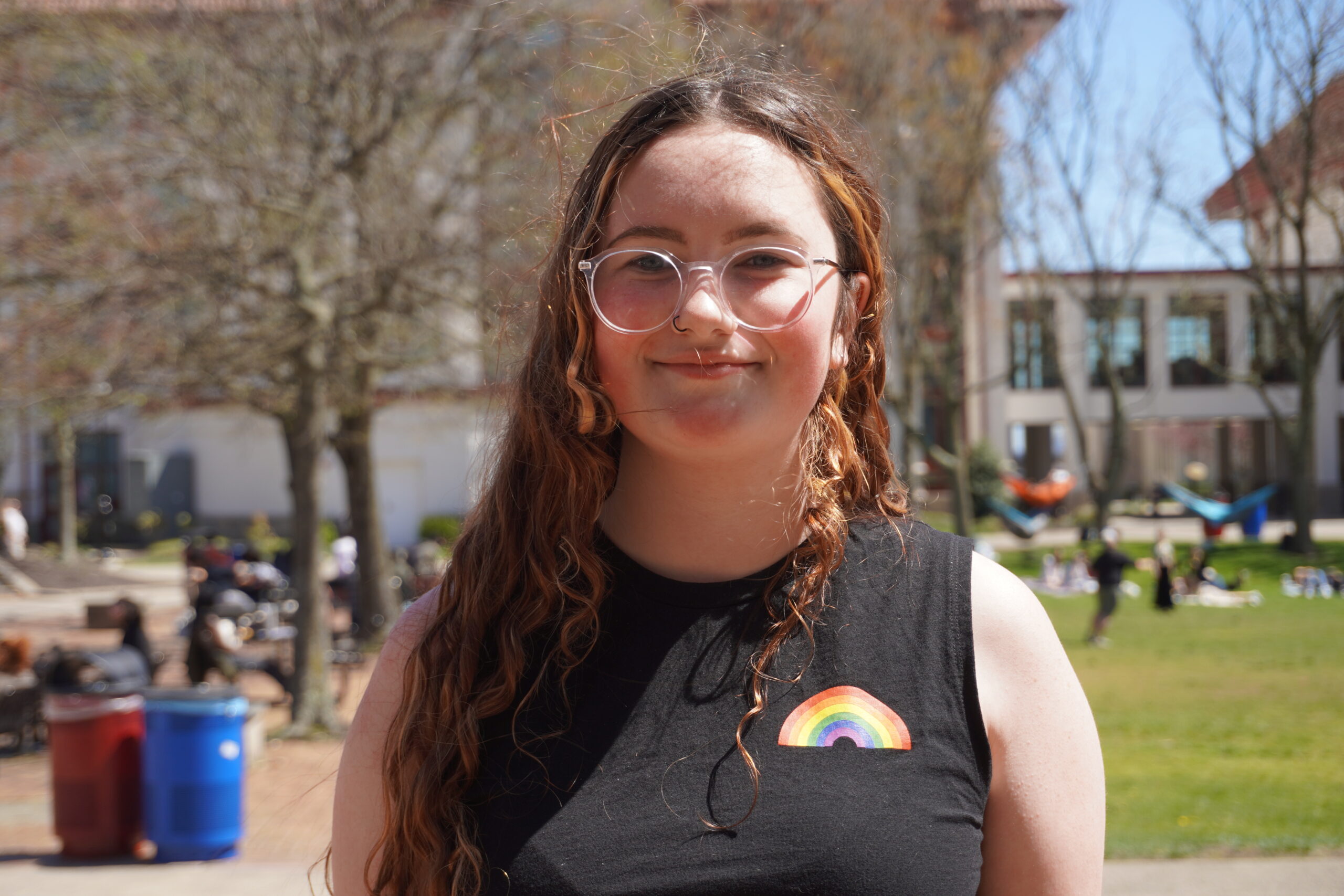
Sophomore nursing major Devin Leonard cites the COVID-19 pandemic and the overturning of Roe v. Wade as events which made her more politically involved. Jordan Reed | The Montclarion
Devin Leonard, a sophomore nursing major, mentioned judgment and universally strong political opinions as a reason many are burnt out politically.
“I feel a lot of judgment [expressing political views], and I feel a lot of people feel so strongly in their opinions,” Leonard said. “[People are] not willing to listen to anybody else and their views. So I feel it’s hard to express your opinion when you know that somebody’s going to combat it immediately.”
However, Leonard also notices a large amount of political participation on Montclair State’s campus.
“I would say I feel a lot of my friends are very active in politics, on campus especially,” Leonard said. “Especially with the Israel-Palestine [conflict], I feel like a lot more people on campus have gotten involved.”
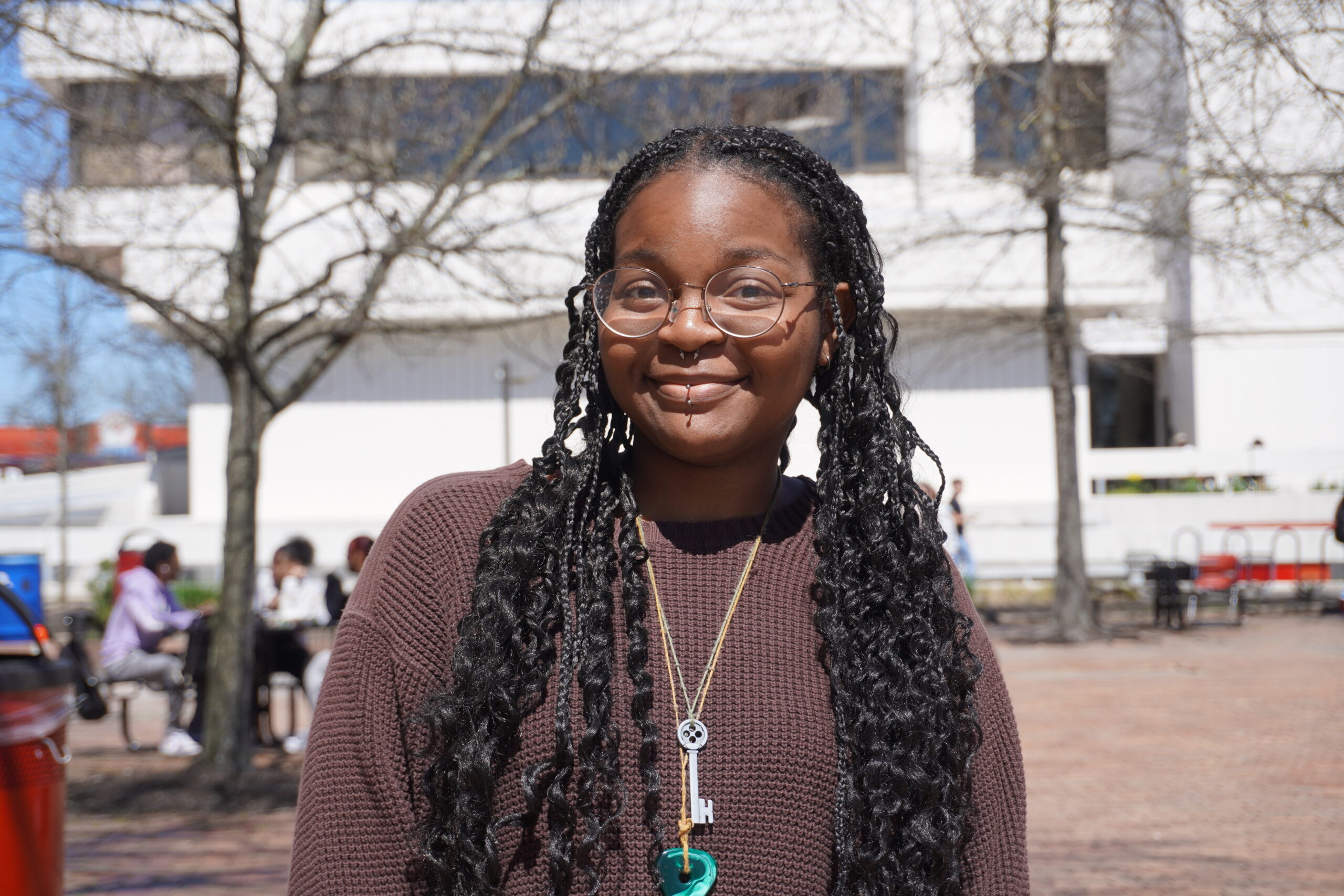
Sophomore psychology/English major Azhane Simpson cites out-of-touch lawmakers and a lack of open-mindedness among Americans as reasons many feel political apathy. Jordan Reed | The Montclarion
Azhane Simpson, a sophomore psychology and English major, believes there is a lack of humanity amongst lawmakers today.
“I believe it’s important to be aware of things and not completely block everything out,” Simpson said. “I feel like people forget that there are people involved in politics.”
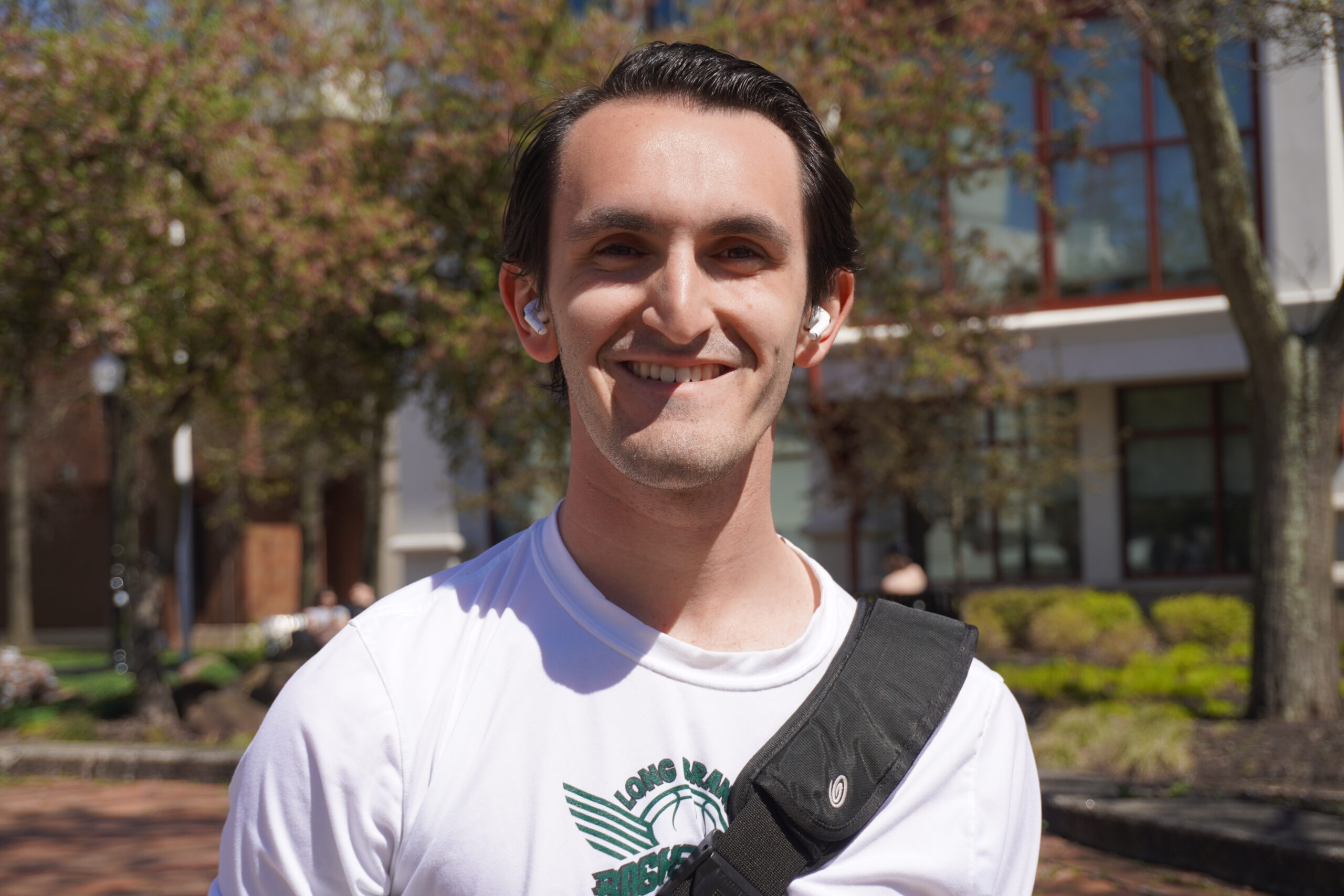
Dominic Sama, a junior political science major, believes everyone should be politically active, regardless of their views. Jordan Reed | The Montclarion
Dominic Sama, a junior political science major, claims the “recycling of candidates” as a reason many young people might shy away from politics.
“We keep recycling the same politicians,” Sama said. “We have two candidates who are above the age of 70. Not only is one accused of being too old, but now you’ve got the other candidate who’s making those accusations falling asleep in court.”
Sama cites the Israel-Palestine conflict as an event that has sparked a lot of political conversation.
“The foreign conflicts I’ve seen nowadays [are] getting me to feel more disengaged only because of how bad the blood is, in terms of the whole [conflict],” Sama explained. “I’m trying to educate myself as much as possible on the issue because I have friends who stand on both sides.”
Sama also believes that right now is a very important time to become politically engaged and remain open-minded to others’ views to facilitate meaningful conversations.
“You see these foreign conflicts going on, [and] no matter where you [stand], I believe it’s important to stay engaged,” Sama said. “We need those perspectives. We also need the perspectives in terms of the Ukraine-Russia [conflict]. I think we need people to just be more open-minded. I think when people get engaged in [political content], they need to be very open-minded and listen to one another. I think that’s what we’ve lost. I think it’s good to listen to other people speak because you never know, you might realize that you don’t know everything. I had to realize that the hard way.”

